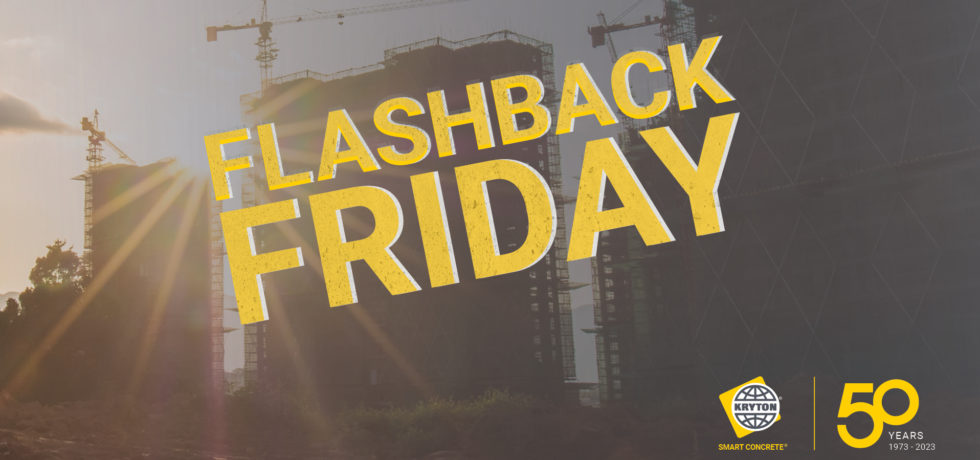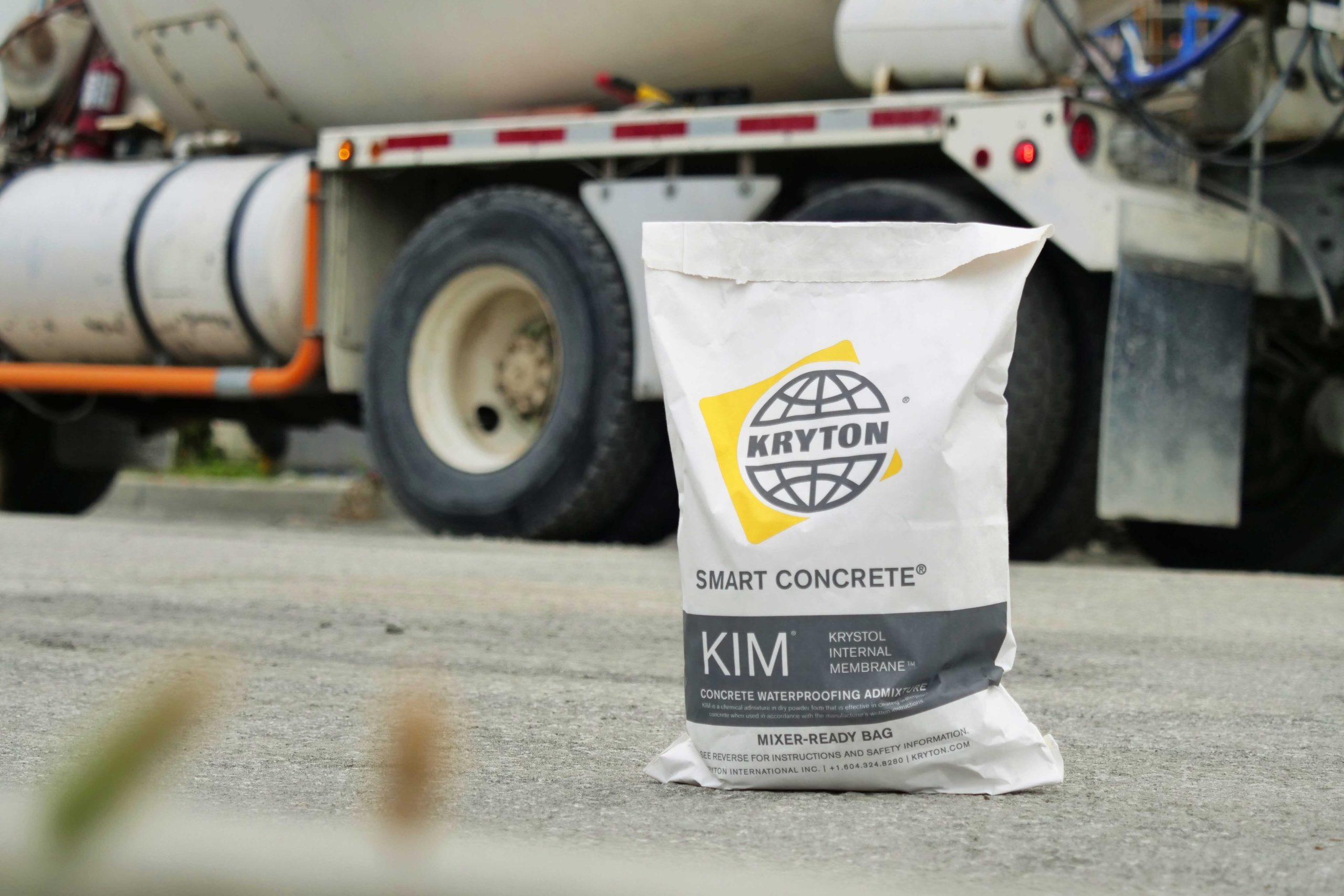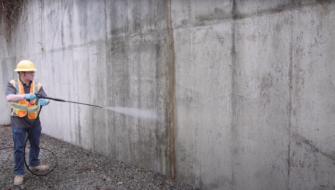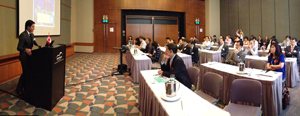Category
- Events
- Most Popular
No matter what role you play in construction, you’re part of the global construction industry. It’s a fact that can sometimes be forgotten when you’re competing to win a project. But at the end of the day, you want the industry as a whole to remain profitable so you can keep doing work that you believe in. It’s work that ultimately goes toward supporting the development of new and existing structures, which allows others to maintain both their personal and work lives. That thought is one of many that has driven the founder of Kryton, Ron Yuers. (It’s also partially what led to the creation of Kryton and our Smart Concrete solutions from the start.)
Determined to help restore concrete structures back to proper working shape for those who rely on them, Ron frequently found himself frustrated at the state of the materials he used. While many of these concrete waterproofing products were meant to repair leaks and prevent water ingress, their quality was not often reliable. Ron wanted to change this not just for his own pre-Kryton company at the time but also for everyone else in the industry.
He made that possible with Krystol® technology, the first of Kryton’s Smart Concrete innovations. Able to permanently waterproof concrete, the technology was a hit for local businesses. But Ron knew he couldn’t keep these sorts of discoveries just for his local industry. The rest of the world deserved better concrete products too.
Kryton’s Smart Concrete Solutions Started Out Small and Grew from There
While Ron wanted to share his solutions with the world, the beginnings of his company in the 1970s were more local. Kryton started work with nearby businesses. And in short order, that earned Kryton a reputation for being reliable. AEC professionals knew that they could rely on Kryton’s Smart Concrete solutions.
It was a promising start that Ron soon wanted to expand. He put his all into the effort, buying one-way tickets to a place and staying there until he had sold something. Meanwhile, Jeanette, his wife, helped manage the local business back home.
The two made a strong duo, driving Kryton forward and improving the lives of AEC professionals bit by bit. But that didn’t mean they didn’t run into challenges every now and then. After all, Kryton had to do more than stay on top of local market demands, expectations, and conventions. The company needed key insights into what that looked like for other places around the world.
Team Canada Missions Eased the Challenges of This Expansion
As you might have guessed, finding out the construction needs for companies in different countries was no easy task. Ron had done admirable work on his own, but it really took off once he received an invitation from the Canadian government to join Team Canada trade missions.
In fact, this invitation was for the very first of these trade missions in 1994. It was a project helmed by the prime minister at the time, Jean Chrétien, and its aim was to increase business opportunities between Canada and other countries. Naturally, this was a good fit for Kryton’s interest in helping AEC professionals around the world build even better. As a result, Ron didn’t hesitate to take on this opportunity.
The end result proved to be a success for both Kryton and international businesses. Ron was able to build contacts for Kryton in Australia, Hong Kong, Thailand, and elsewhere. And the people there were able to benefit from Kryton’s expertise in concrete waterproofing.
It wasn’t a one-time experience either. Kryton kept up with international trades. That helped form a number of business connections, including a growing relationship with Kryton Buildmat in India that remains strong to this day.
The company even went on to join another Team Canada mission in 2001. That led Kryton to China, creating a venture worth $2.4 million between the company and the Tongji University in Shanghai. The support between the two entities was more than monetary, however. It was developed to form a Canada-China research group at the university’s Material Science and Engineering Institute. This group would look at ways to advance technology in specialty chemical products.
That was just some of the many avenues that Ron and Kryton as a whole would look at to see how people in construction could enhance their work.
That Made Permanent Waterproofing Accessible Worldwide
With more and more connections being made throughout the world, Kryton now had the chance to help many more AEC professionals get more reliable concrete waterproofing. No longer would they have to worry about relying solely on external membranes and having them tear (as they so often do). Instead, they could be confident that their concrete would remain free from water ingress with Smart Concrete solutions.
Plenty of similar success stories followed suit. These ranged from the extensive Boeing Everett Factory in Washington in 1983 to the popular Marina Bay Sands resort in Singapore in 2010 to much, much more. All of which have remained safe and dry since their creation.
(Interested in hearing more? Check out our case study library!)
Since Then, All Smart Concrete Solutions Have Been Globally Available
Over time, Kryton has strived to stay on top of global construction industry concerns. And it’s led to a number of industry benefits. For one, AEC professionals worldwide can get a complete waterproofing system, which can protect concrete structures from water, corrosion, and even alkali-silica reaction.
They can also make their structures more resilient to harsh environments with the revolutionary Hard-Cem® admixture. That increases concrete abrasion and erosion resistance, which can more than double a concrete structure’s life span while reducing its overall carbon footprint.
And there’s even a way for AEC professionals to monitor the development of their concrete without the need for time-consuming manual labor by using Maturix®.
All of these Kryton solutions and more are now able to be easily distributed throughout the world, making building better and more durable than ever. It’s all thanks to 50 years of working hard to understand and solve the current problems of the global construction industry.









